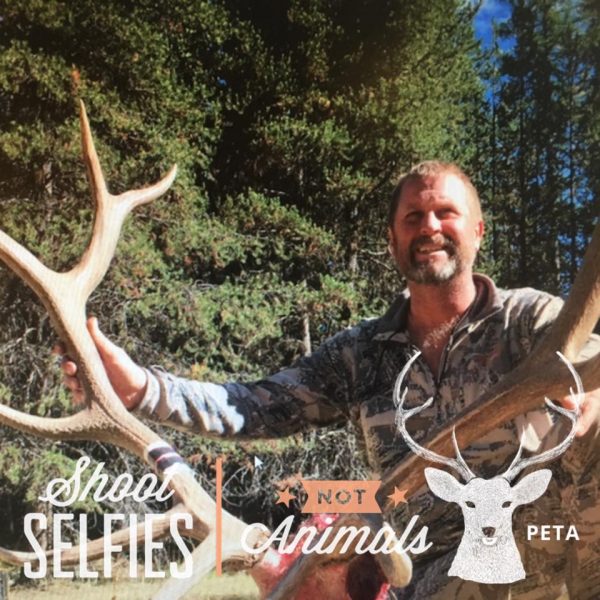PETA Facebook Profile Filter Goes Viral — Thanks to Hunters Like You!
Randall Bonner 08.25.17
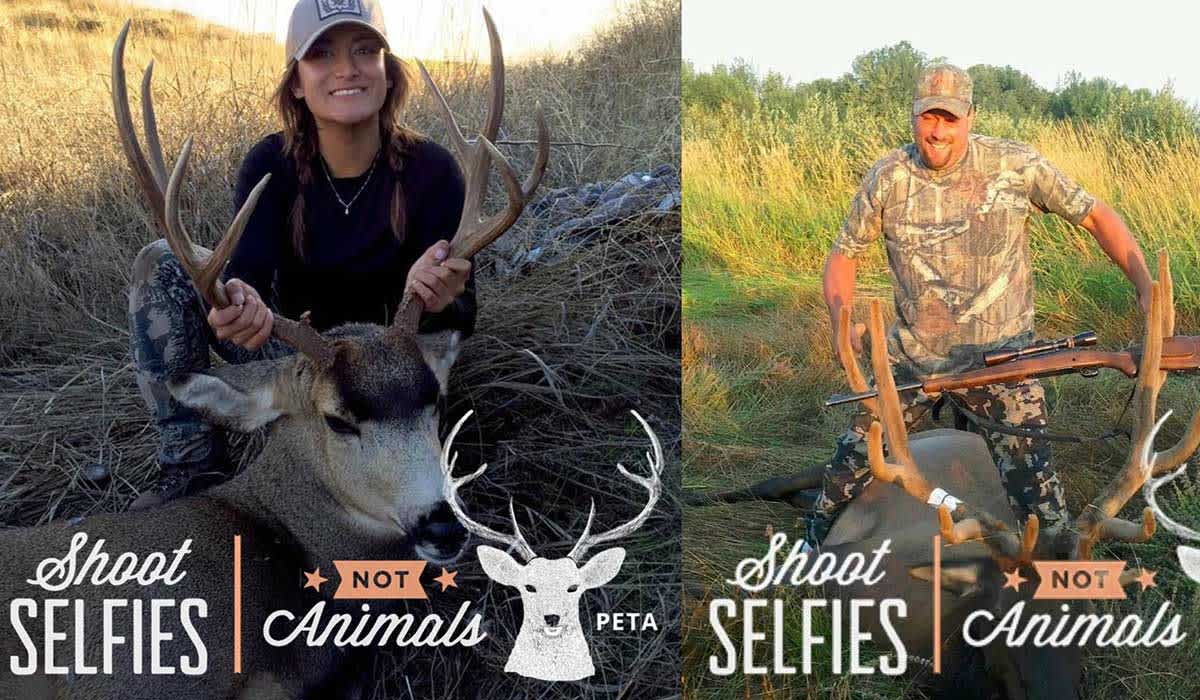
Soon after the People for the Ethical Treatment of Animals (PETA) released a Facebook profile picture filter reading “Shoot Selfies, Not Animals,” hunters caught on quickly and claimed the frame for their own profiles. Many prominent hunting figures in the outdoor industry as well as weekend warriors, even fishermen, followed suit.
Wild Chef Jeremiah Doughty was one of the first to adopt the frame, and added it to a photo of himself butchering a fallow deer. Doughty, who owns the website FromFieldToPlate.com has made a career out of his meal choices after discovering he developed an allergy to beef, and began choosing to harvest all of his own free-range meat. His culinary works are a cultural reflection of the popular “Farm to Table” movement, popular among organic farmers that want to offer a locally sourced food directly through their own kitchen, providing an optimal dining experience that gives meaning to the work that goes into producing each meal. However, Doughty says that within 24 hours of using the PETA filter on his profile photo, he received well over 200 death threats.
Many hunters like Doughty have their own personal reasons for choosing wild game as part of their diet. In an article about the growing number of female hunters published here on OutdoorHub just 48 hours before this viral PETA frame fiasco took place, hunter Asha Aiello explained that, “Women want to know where their food comes from.” I think we can all agree that knowing the source, or being connected to the source that our food comes from instills a confidence in the freshness and quality of what we’re consuming. “We want to be able to participate in the process, and there’s no better way to access meat,” Aiello added.
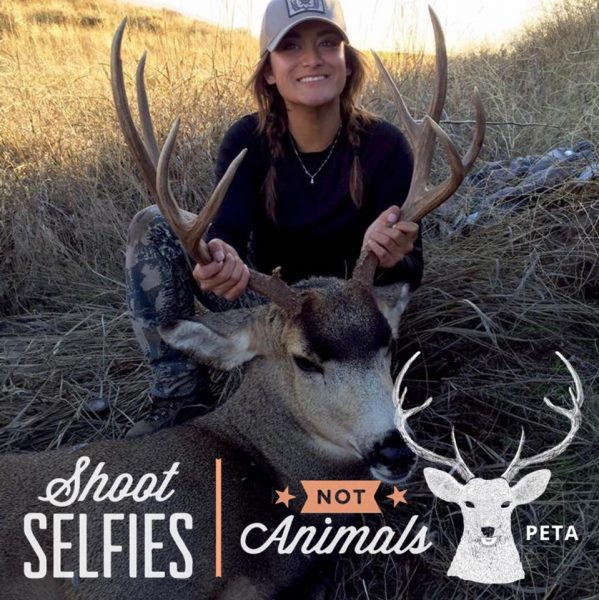
Just as any vegan foodie has a special connection to picking kale and tomatoes from their own garden, hunters are connected in a similar way to the meat they put on their tables. Whether it’s dirt under our fingernails or blood on our hands, that primal connection to our food is inherently instinctual, and arguably more human than pushing a shopping cart through the grocery store, regardless of whatever processed and neatly packaged food products you’re putting in it.
While hunting is a historical and traditional means of gathering food that dates back thousands of years, the concepts of factory farming as well as omitting meat from our diets are both relatively new human experiences. Hunters are the largest contributors to conservation efforts worldwide, and the biggest threat to wild animal habitat is industrial agriculture. The group of people who hunt — you and me included — acquire meat in a distinctly unique manner that in the grand scheme of our society seems absurd for PETA to direct hostility toward.
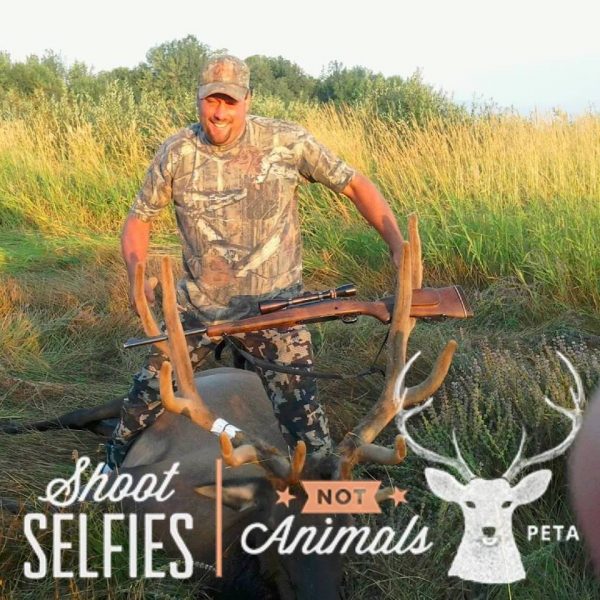
In our current political culture, where opposing sides are quick to shouting their differences without taking a moment to identify with each other, vegans and hunters might find they have more in common than they think. In 2012, “Meat Eater” author and TV show host Steven Rinella responded to a vegan that publicly challenged his ethics as a hunter during a book signing, explaining “I admire the deer, but I admire the idea of deer more than the individual deer. I can assure you that I know more about deer than you ever will, and I’ve learned that from hunting them. I probably care about them in a deeper way than you’re going to experience from having a removed perspective.”
He goes on to explain to the vegan, “I’ve always had respect and admiration for the cohesiveness and clarity of veganism. It doesn’t strike me as being unusual, or anything other than a perspective. I’d rather have you over for dinner than someone who feeds their pets chunks of meat from a store while acting like I’m some kind of viscous animal for killing a deer.” You can watch the full video of that interaction by clicking here.
While many hunters joined in, mocking PETA as a show of solidarity to their fellow hunters, some spoke out about their hesitation to jump on the bandwagon. Some hunters (who wished not to be named) expressed concern over whether the organization was using the filter as a ploy to trap hunters into becoming a target for harassment. Others had their own reasons for ignoring the viral trend.
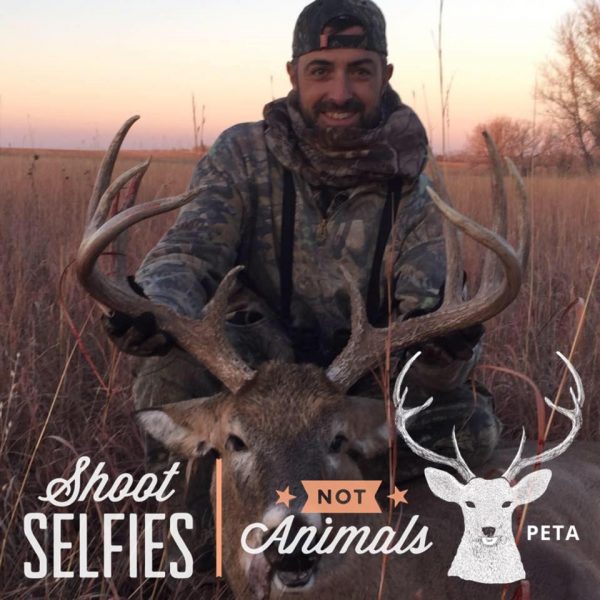
Hunter and angler Matthew Dickason said, “I don’t feel like this is an effective way to change anyone’s mind about hunting, fishing, or conservation. I do love seeing people doing their outdoor thing and getting it done, but am wary of taking part in what boils down to hunters using hashtag activism. Join an organization like the TRCP or Backcountry Hunters and Anglers if you want to show solidarity to your fellow hunters.”
Fishing guide and hunter Ashley Nicole Lewis said, “I chose not to use the filter. There are some good activists with good intentions there, too, whether you agree with their views or not. For myself, I can live in a world where people don’t agree with me, and I would never give publicity to something I want to go away.”
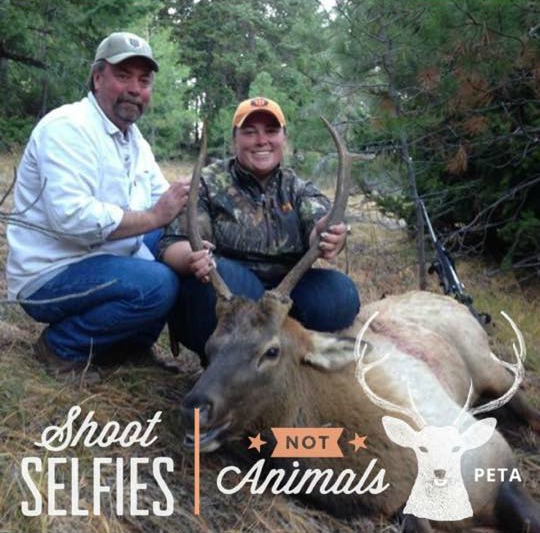
PETA released a statement on the same day this article was written, saying, “More than 250,000 people have used the frame, and it’s currently the most popular one on all of Facebook.” In addition, PETA’s Facebook page saw a more than 50 percent increase in “likes” from Tuesday to Wednesday.
“PETA owes a big thank-you to the would-be trolls who are spreading our message of compassion,” PETA Executive Vice President Tracy Reiman said. “The supportive messages are pouring in from kind people who agree that only bullies or cowards get their kicks from gunning down beautiful wild animals.”
So where do you stand on the PETA profile filter issue? Did you use it? Feel free to leave a sentence or two explaining your opinion in the comments section below.
